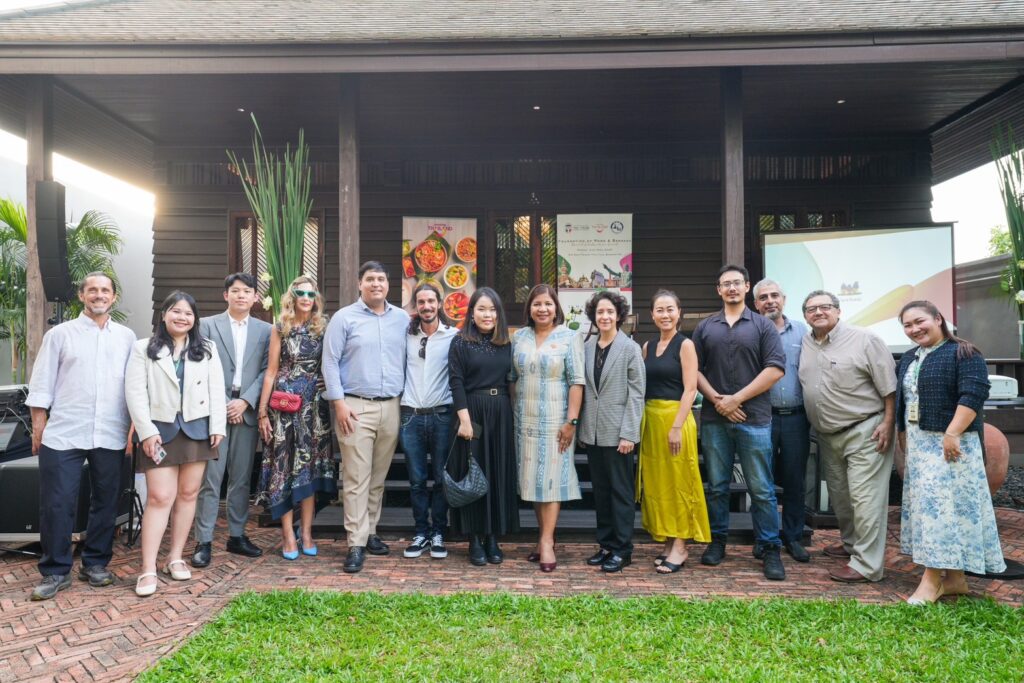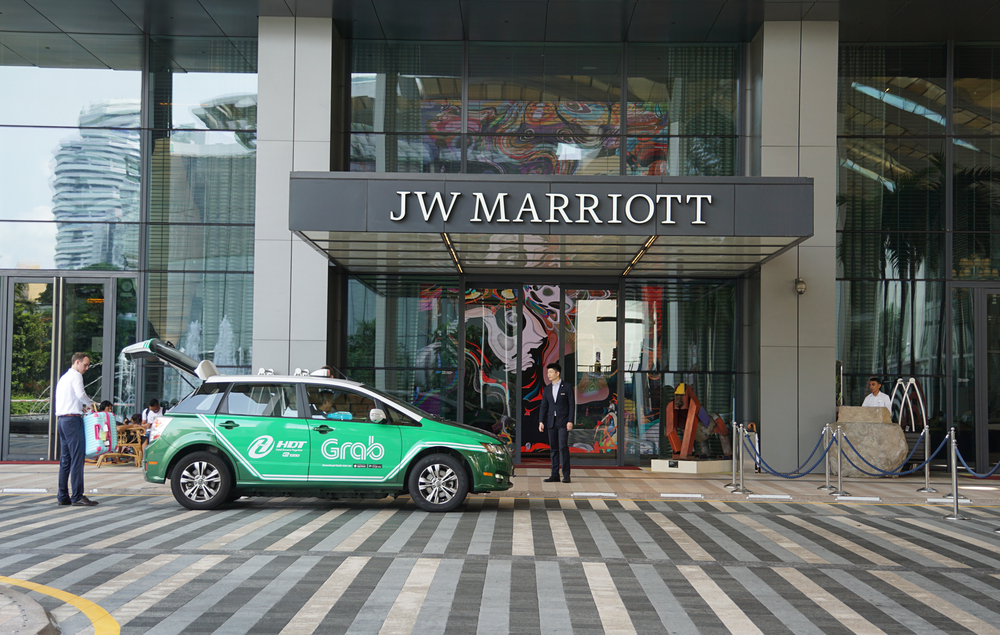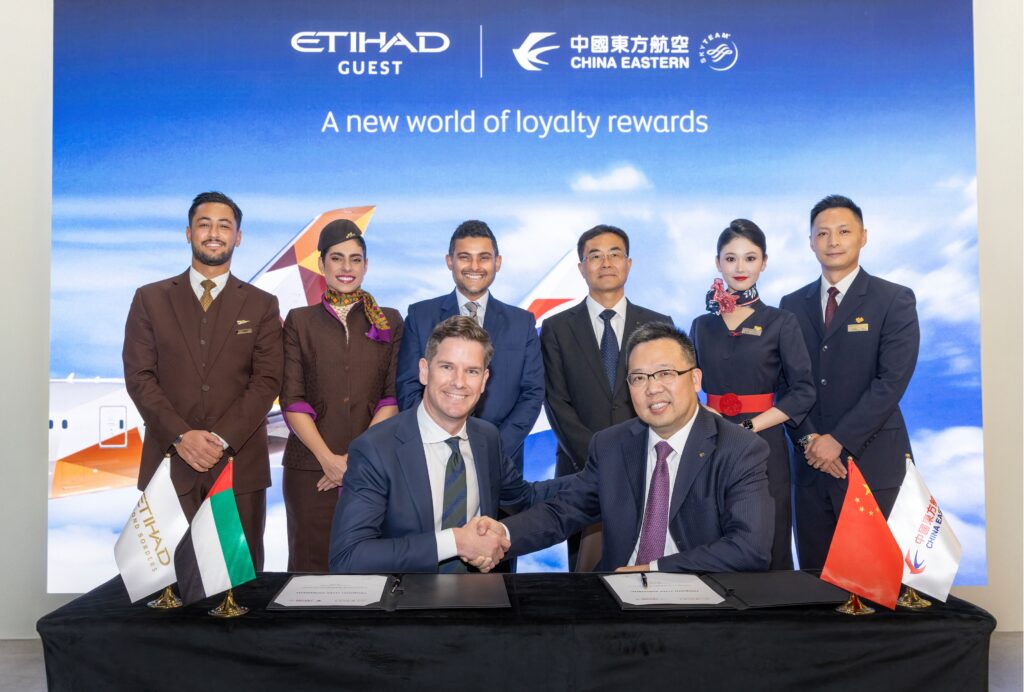
The post Top Four trends reshaping ‘Regional Tourism’ In GCC appeared first on TD (Travel Daily Media) Travel Daily Media.

The Gulf Cooperation Council (GCC) tourism sector is undergoing a transformation fuelled by infrastructure investment and experience-led development, as revealed in the Connecting Travel Insights Report 2025. Powered by Mabrian, the global travel intelligence platform, the report identifies critical growth opportunities for the region—including leveraging air connectivity, refining guest experiences, and tapping into high-potential segments like bleisure and younger travellers.
This is the second consecutive year Mabrian, part of The Data Appeal Company – Almawave Group, provides data intelligence for this study, drawing from its broad range of over 30 global data sources and data analytics expertise. The Connecting Travel Insights Report 2025, launched in an industry luncheon during Arabian Travel Market 2025 in Dubai, has been developed in partnership with Connecting Travel, leading Middle East travel trade media outlet.
This report unveils a data-rich picture of how the Gulf Cooperation Council (GCC) is fast-tracking its evolution into a world-class travel and tourism hub, from both inbound and outbound perspective. In terms of international demand to GCC destinations, the study identifies four key trends reshaping the regional tourism landscape:
Trend #1: Leveraging Air Connectivity Edge to Boost Inbound Travel
The GCC’s rapid ascent to global tourism prominence is underpinned by strong air connectivity. According to Mabrian’s air capacity data, Saudi Arabia, the UAE, and Qatar form a robust connectivity triangle, driven by consistent international air capacity growth since 2019—+38%, +14.5%, and +14%, respectively. Reinforcing air connectivity during the shoulder seasons (with milder temperatures) or through seasonal routes operated by low-cost carriers could support the goal of increasing long-haul leisure arrivals—not only for these countries, but also for other GCC destinations such as Oman and Bahrain.
“The next step is to leverage this strategic advantage to pursue three key goals: increasing long-haul leisure arrivals and stays, aligning with seasonal demand through customised, crafted experiences, and exploring new demand segments to boost visitation,” says Carlos Cendra, Partner and Director of Marketing and Communications at Mabrian.
Trend #2: Putting Deliberate Focus on Crafting Exceptional Travel Experiences and Adventure, as Core Differentiators
The report guides readers through the array of experience-led projects being developed across GCC countries, highlighting how these attractions blend local heritage, cultural richness, and international brands to capture global attention and appeal to travellers worldwide. However, Mabrian’s Tourist Product Satisfaction Index (TPI) raises a red flag on a critical issue: to successfully position themselves as premium destinations for high-value, repeat visitors, GCC countries must prioritise the quality of experiences—especially by delivering world-class on-site service.
“TPIs from benchmark destinations for the GCC—such as Singapore, Thailand, Turkey, and the Seychelles—range from 70 to 75 out of a possible 100 points, whereas the GCC average stands at 68.1, reflecting the performance across all six countries,” says Cendra. “The good news is that all GCC destinations are showing an upward trend in this index, indicating they are on the right path and should continue to build on this progress in the months and years ahead.”
Trend #3: Improving overall and mid-range perceived guest experiences, crucial for boosting long-haul leisure stays
”To achieve sustained growth, overall satisfaction with accommodation is essential for increasing leisure arrivals and encouraging longer stays. This guest satisfaction must extend beyond the luxury segment—particularly in upper midscale and upscale hotels.” explains Mabrian expert. “If the guest experience does not meet international standards, it may discourage travellers from considering GCC destinations as viable long-stay holiday options.”
Hospitality Satisfaction Index (HSI) scores reveal areas for improvement: destinations like Saudi Arabia (62.1 out of 100), and Qatar and Bahrain (70.3) must go the extra mile in making sure lodging experiences are memorable. This means investing in guest experience not only in luxury segments but also across lower categories—diversifying hotel development to include upscale and mid-upscale options in both urban and resort settings.
Trend #4: Tap into uncharted segments to seize and capture leisure global demand
Mabrian data featured in the Connecting Travel Insights Report 2025 also highlights the potential of key demand segments to boost leisure travel in the region—particularly the bleisure segment and younger generations. As Mabrian’s CMO notes, “Travellers to GCC destinations display a distinct behavioural pattern that sets them apart from other markets: business travellers consistently record longer average stays than leisure visitors. This trend, observed over the past two years, suggests that these destinations are successfully capitalising on the bleisure opportunity among international travellers.”
There are, however, two exceptions—Saudi Arabia and Oman—where the balance tips in favour of leisure travellers. In Saudi Arabia, for example, leisure visitors stay an average of 4.11 days, compared to 3.18 days for business travellers. In Oman, business stays are slightly shorter than those of leisure guests. “To strengthen the bleisure segment, GCC countries should enhance mid-range accommodation options and align hotel experiences—especially in top-tier categories—with global standards,” Mabrian’s CMO adds.
Likewise, there is significant growth potential among younger travellers. Capturing their attention could boost arrivals, not only by expanding lodging options in midscale and economy categories but also by promoting aspirational tourism products and services that resonate with their interests. According to Mabrian insights, currently, about 1 in 5 visitors to GCC destinations is aged between 18 and 35. Keeping this segment engaged could make a substantial impact in both the near and long term.
The Connecting Travel Insights Report 2025 also explores additional competitive advantages that position GCC destinations to attract international holidaymakers. These include a forward-looking vision for multimodal mobility, enhanced cross-country collaboration to optimise promotion and development, and the power of destination specialisation to transform the region’s long-term tourism strategies.
“This year’s findings reflect a maturing and increasingly competitive global tourism ecosystem—and the GCC is clearly playing to win,” says a Mabrian spokesperson. “That’s why data intelligence is so vital in this fast-evolving landscape—not only as a tool to anticipate trends and opportunities, but also to uphold high standards and stay attuned to changing traveller preferences and destination development dynamics.”
The post Top Four trends reshaping ‘Regional Tourism’ In GCC appeared first on Travel Daily Media.
Source: traveldailymedia





















